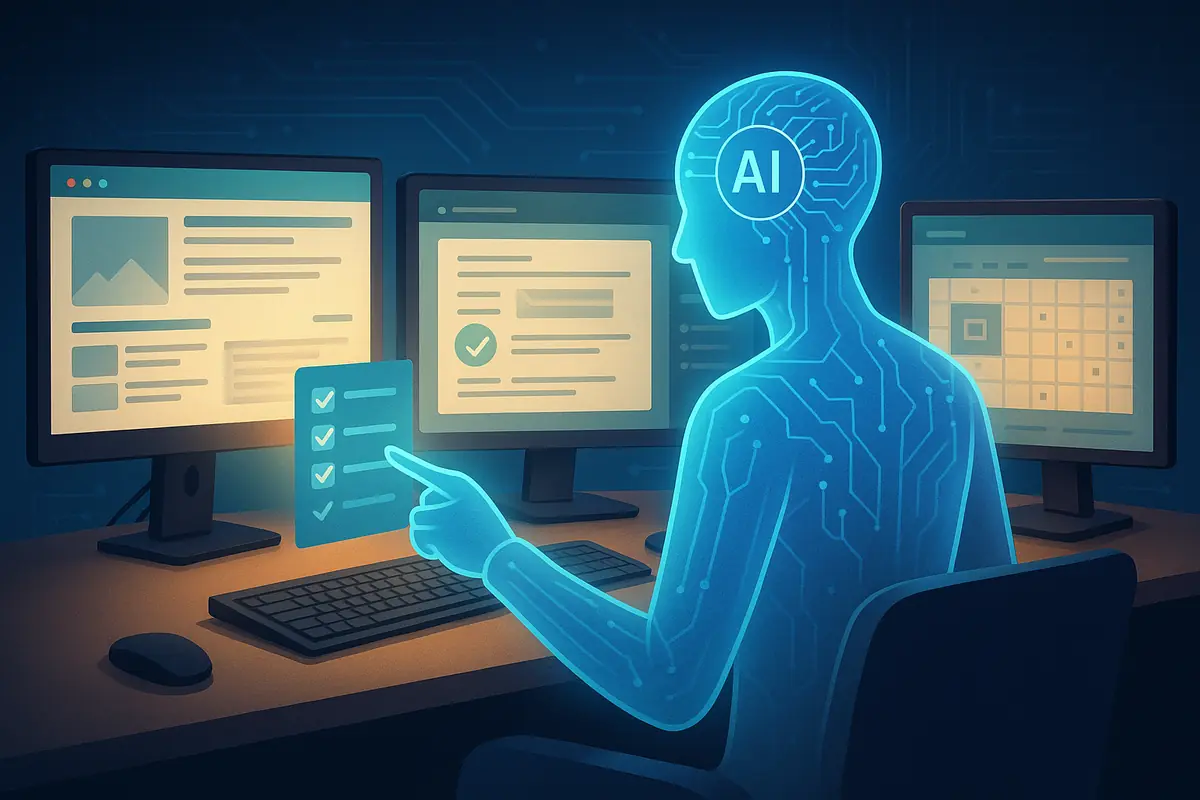Why AI Agents Are Becoming the Internet’s New Workers
AI agents are evolving from simple assistants into autonomous digital workers capable of performing multi-step tasks, learning from feedback, and reshaping online productivity.

For years, AI tools behaved like calculators with fancy language skills. You asked a question, they returned an answer. But a new wave of AI agents is pushing far beyond chat responses. They don’t just explain how to do something — they go and do it. Quietly, in the background, these digital workers are starting to reshape how tasks get completed online.
AI agents behave more like interns than tools. Give them a goal — book a flight, draft a proposal, fill out forms, analyze a PDF, or update a calendar — and they break the work into steps, execute them, and adapt if something changes. This shift from “answering” to acting is what makes agents the most transformative AI trend right now.
At the heart of this evolution is autonomy. Agents can browse websites, gather information, perform calculations, and even trigger other software tools without constant instruction. They monitor progress, check results, and correct mistakes. Instead of simply generating text, they manage processes. And this ability to handle multi-step workflows is exactly what makes them so powerful for businesses and individuals alike.
One emerging use is micro-automation. People are already deploying agents to monitor prices, track shipments, summarise inboxes, or extract data from documents. What once required a virtual assistant or hours of manual clicking can now happen automatically in the background. The line between “software” and “staff” is starting to blur.
But there’s another layer: agents learn. Each run gives them more feedback about what works and what doesn’t. Unlike traditional automation scripts, they don’t collapse the moment something unexpected appears — an outdated link, a changed layout, or a missing button. They adjust. This makes them far more flexible than the old rules-based systems companies relied on for decades.
The implications are massive. Entire categories of online work — research, scheduling, data entry, customer support — may be handled by fleets of digital workers that operate 24/7. Small businesses can suddenly enjoy automation that previously required enterprise-level budgets. Individuals can scale their personal productivity without hiring additional help.
Of course, autonomy comes with concerns. If an agent can perform actions online, it can also perform the wrong ones. Responsible design, permission boundaries, and transparent logs are becoming critical. The conversation is shifting away from AI replacing people and toward AI collaborating responsibly with them.
Still, it’s clear that AI agents are not a future concept — they’re already here. And as they grow more capable, the internet itself may feel less like a place we navigate manually and more like a workspace managed by tireless digital colleagues.
We’re not just using AI anymore. We’re delegating to it.